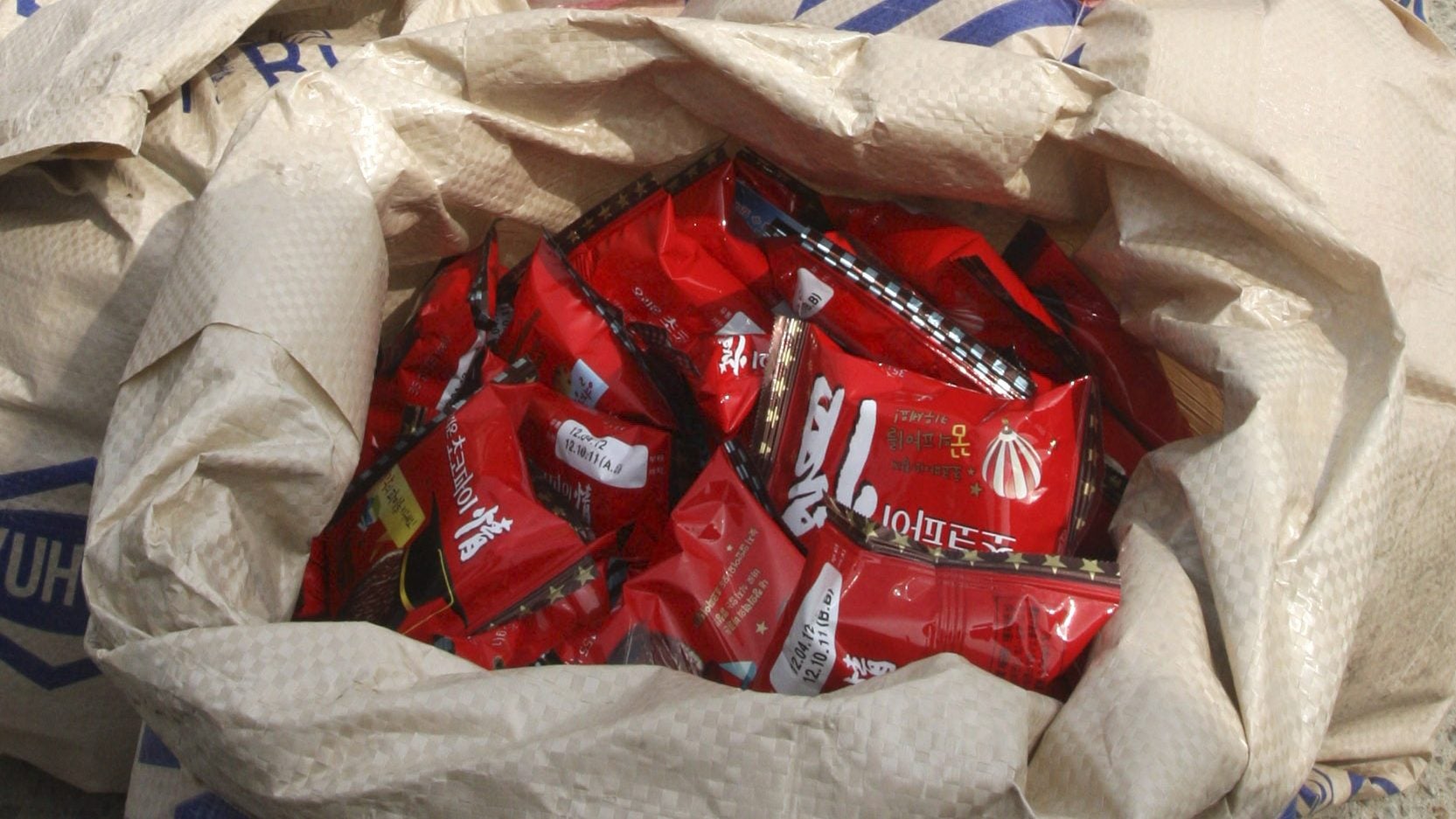The North Korean soldier who defected is getting a lifetime supply of Choco Pie
When the North Korean soldier who defected regained consciousness in South Korea, the first thing he asked for was Choco Pie.


When the North Korean soldier who defected regained consciousness in South Korea, the first thing he asked for was Choco Pie.
Upon learning this, the South Korean confectionery company Orion sent 100 boxes of the sugary treat (link in Korean) to his hospital and has promised him a lifetime supply of this North Korean favorite.
During his daring escape, the North Korean soldier, 24-year-old Oh Chung-sung, was shot at about 40 times as he entered the South Korean side of the Demilitarized Zone on Nov. 13. He was airlifted to a South Korean hospital, where doctors operated on him and found large parasitic worms, pointing to the dire state of nutrition and hygiene in North Korea.
When Oh awoke on Nov. 21, he needed reassurance he had made it into South Korea. In addition to the Choco Pie, he had asked to watch television, and doctors also hung a South Korean flag in his room to help stabilize his mental condition.
North Korea’s love of Choco Pie
Orion first introduced Choco Pie—small chocolate-covered cakes filled with marshmallow cream—to South Korea in 1974, but it wasn’t until 2004 that North Koreans were exposed to them.

Choco Pies made their way across the border when the two Koreas started building a joint industrial zone in Kaesong, North Korea, which is about an hour’s drive from Seoul, in 2004. Each day, the South Korean managers overseeing the project would give the North Korean laborers Choco Pies as snacks. It’s estimated about 400,000 Choco Pies (link in Korean) were handed out to the 54,000 North Koreans everyday in 2014.
The treats quickly became cherished by the workers, many of whom were eager to work extra hours to receive additional Choco Pies, which were often resold on the black market. In 2013, a single Choco Pie could fetch $1 (link in Korean) on North Korea’s black market. But when operations on the industrial zone were halted after North Korea’s third nuclear test, the price reportedly went up to $2. A year later in 2014, CNN reported that the black market value of Choco Pie had jumped to $10. In contrast, the average annual income in North Korea was estimated to be $1,000 to $2,000 in 2013.
A taste of luxury
Choco Pie isn’t just an indulgent snack. To the people living in the totalitarian regime, it is a symbol of affluence and capitalism. For North Koreans, who had been told that South Koreans were worse off than they were, Choco Pie was living proof of a better life.
This no doubt caught the attention of Pyongyang, which in 2014 banned South Korean companies from bringing Choco Pies and other goods marked “made in Korea” into the North (link in Korean). At Kaesong, the South Korean managers replaced Choco Pies with instant noodles, coffee, and sausages. Workers, however, were less enthused (link in Korean) about the replacements.
In a show of power, North Korea attempted to create its own Choco Pie (link in Korean). A video released in 2015 show Kim Jong-un in a lab coat touring a factory and inspecting a Choco Pie knockoff (link in Korean). A side-by-side photo of a Choco Pie and its copycat show the North Korean version is much smaller and less evenly coated in chocolate. According to a South Korean reporter who tried the imitation, the North Korean Choco Pie had little chocolate flavor and was overwhelmingly greasy. A researcher at a food manufacturer she spoke with said that because cocoa is an expensive raw material, it’s likely the North Korean makers overcompensated with oil and sugar.
Apparently, North Koreans didn’t think much of them either (link in Korean).
Correction: An earlier version misstated the annual average income of North Koreans as monthly.